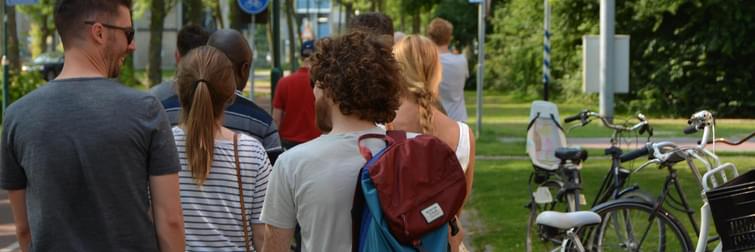
blog: Making the delivery of great places the 'new normal'
Monday 5th August 2019
The housing crisis in the UK is often portrayed as a problem of numbers. Arguably though an even greater housing crisis is unfolding, and one which threatens to have long-term and profound effects on our health and the environment. That is a crisis of quality, typified by monotonous and monocultural housing estates, some of poor standard, designed primarily around the car and built in disconnected places. Through a combination of location and poor design these estates often discourage walking, cycling and public transport use for everyday journeys; contributing to growing obesity and air quality problems.
Transport for New Homes is playing a leading role in pushing these issues up the agenda within the planning and transport industries. They have successfully attracted national media coverage with their report, which highlights the car-centric nature of much of the housing stock being built in the UK. Recent TV programmes focused on social housing, and its typically sub-optimal quality and siting, has further highlighted the scale of the issue at hand.
Transport for New Homes has recently built on its initial work with a Checklist for New Housing Developments that provides a consistent methodology for determining
the sustainability of proposed new developments.
The checklist sets out a series of questions under ten headings, focusing initially on location (including proximity to existing settlements and whether or not development is promoted on the basis of major new highway capacity) before progressing through transport design and land use headings. The outcome is a simple and easy to understand Red/Amber/Green (RAG) score.
The simplicity of the checklist is one of its great strengths. Consequently, it is intended to be practically useful for local authorities, developers and neighbourhood groups alike. For local authorities we think there is significant scope for using it as a way of transparently explaining how local policy for ‘promoting sustainable transport’ – as required by the National Planning Policy Framework (NPPF) – is being interpreted, as well as for assessing specific sites and development proposals that come forward. Alongside the recent report ‘Integrating the Planning and Delivery of Sustainable Transport with New Housing Development’ by GreenerJourneys, and the joint guidance on ‘Better planning, better transport, better places’ that is about to be launched by the CIHT and RTPI (all of which ITP has been delighted to contribute to), there appears to be a growing recognition of the urgent need to change how we deliver new places.
The checklist’s primary focus on getting location right is absolutely on-point, and should (in ITP's view) sit right at the heart of strategic decision making on where new homes and jobs are sited. However, in practice the pressure to achieve housing targets often means that spatial growth is currently led more by the 'call for sites', and therefore land being promoted by developers. Coupled with transport modelling practices that often prioritise ‘predict and provide’ considerations of the need for highway capacity to accommodate anticipated increases in car trips arising from proposed development, this typically leads to some of the negative outcomes documented by Transport for New Homes.
Underlying all of this is a belief in some quarters that car-based development and connectivity is 'what the market wants'. This perspective fails to acknowledge the reality that it is also 'all that has been offered' across much of the UK over the last 20-30 years.
ITP has been working with local authorities across the country on their growth strategies, helping to guide development towards locations that support sustainable patterns of mobility, and designing-in the key ingredients that we know can ensure ‘good growth’. For example, drawing on our company study tour to Houten, in the Netherlands, last year we have been distilling best practice and setting out the foundations for achieving Dutch levels of sustainable mode share in North Essex.
Meanwhile, in Oxfordshire, we recently helped Cherwell District Council to make a clear case, accepted by the Planning Inspectorate, that some of Oxford’s unmet housing need should be sited within the Green Belt. This was on the basis that minimising travel distances, and maximising opportunities for sustainable travel by new and existing residents, constitutes the exceptional circumstances needed to review the Green Belt boundaries.
It’s not just the transport profession that is beginning to realise the need to change what ‘business as usual’ looks like. Numerous population surveys have demonstrated significant public support for 'low-car' lifestyles that encompass reduced urban speed limits and the delivery of pro-cycling policies and routes alongside a willingness to change behaviours. Sadly this is often drowned out by a generally hostile, and pro-car, media.
We as an industry know what we have to do. The public want change – especially in the face of growing concern over the impending climate crisis. With clear purpose and investment we at ITP believe it is possible to move the needle, and make it socially and politically unacceptable to deliver anything other than great places that support happier, healthier and more sustainable lives. The Transport for New Homes checklist is another key step towards this outcome and we are in the process of building it into our existing work practices, which already consider a number of similar qualitative and quantitative indicators that we apply when scoping search areas and possible sites for development. In line with our mission to improve the way the world moves, we will continue working as hard as ever to maximise opportunities for sustainable mobility through our work on these projects.
For more information about the services we provide please get in touch or click here.
